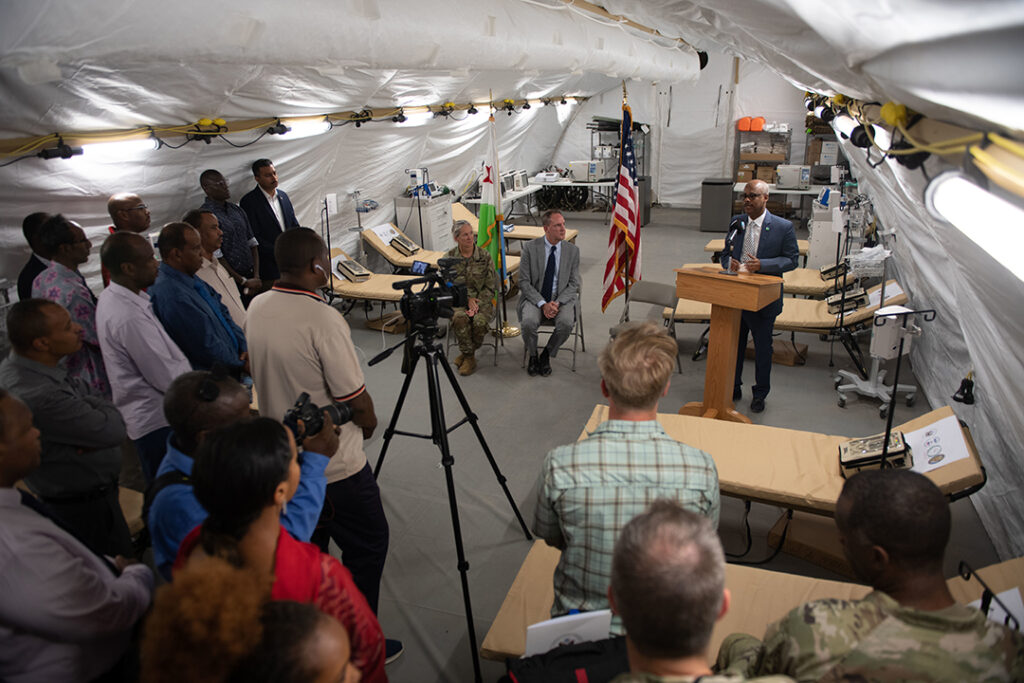ADF STAFF
While Djibouti is responding to the COVID-19 pandemic, its health care system also is facing a measles outbreak in the north.
In the eyes of Minister of Health Dr. Ahmed Robleh Abdilleh, it’s the perfect time to add capacity.
The United States government through its Agency for International Development (USAID) recently handed over a $4 million mobile field hospital to Djibouti’s Ministry of Health.
“The hospital will be used in the management of health crises,” Abdilleh tweeted on July 22.
The fully functional facility is equipped with water supply, plumbing, power generators and biomedical equipment.
It is the second mobile hospital unit the U. S. government has donated to Djibouti. The other is being used by the Ministry of Defense.
The hospital can be moved wherever needed to respond to disasters or ease the burden on other health care facilities. Abdilleh promised that the field hospital will be used in the most effective way possible.
“This important donation illustrates the perfect fraternal and sustainable collaboration between our two countries,” he said during a handover ceremony in Balbala on July 20.
U.S. Ambassador to Djibouti Jonathan Pratt praised the ongoing collaboration between the two countries.
“We are proud to work side by side, every day, with our Djiboutian partners and colleagues to ensure that our contributions to health care, job creation, education and security are working for the benefit of all Djiboutians,” he said during the ceremony.
Pratt also highlighted USAID funding to help businesses and individuals recover from the effects of COVID, including job training for Djiboutians.
Djibouti’s number of new COVID-19 cases has been low and manageable since the fourth wave of the virus peaked in mid-January. The country has recorded 15,753 infections and 189 deaths since the beginning of the pandemic, according to the Africa Centre for Disease Control and Prevention’s August 14 statistics.
The mobile field hospital will bolster the country’s COVID-19 response.
Maj. Gen. Jami Shawley, commander of the Combined Joint Task Force-Horn of Africa, praised the work of the U.S. 319th Engineer Support Company for expanding the mobile field hospital before the handover.
It added a five-bed intensive care unit and a 30-bed isolation facility with bathrooms to double the capacity of the hospital to 60 beds.
“This is excellent work and enables medical professionals from Civil Affairs to conduct critical training with their counterparts from the Ministry of Health,” she said during the ceremony.
“We are privileged to help Djiboutians who have shown great initiative and prowess.”

